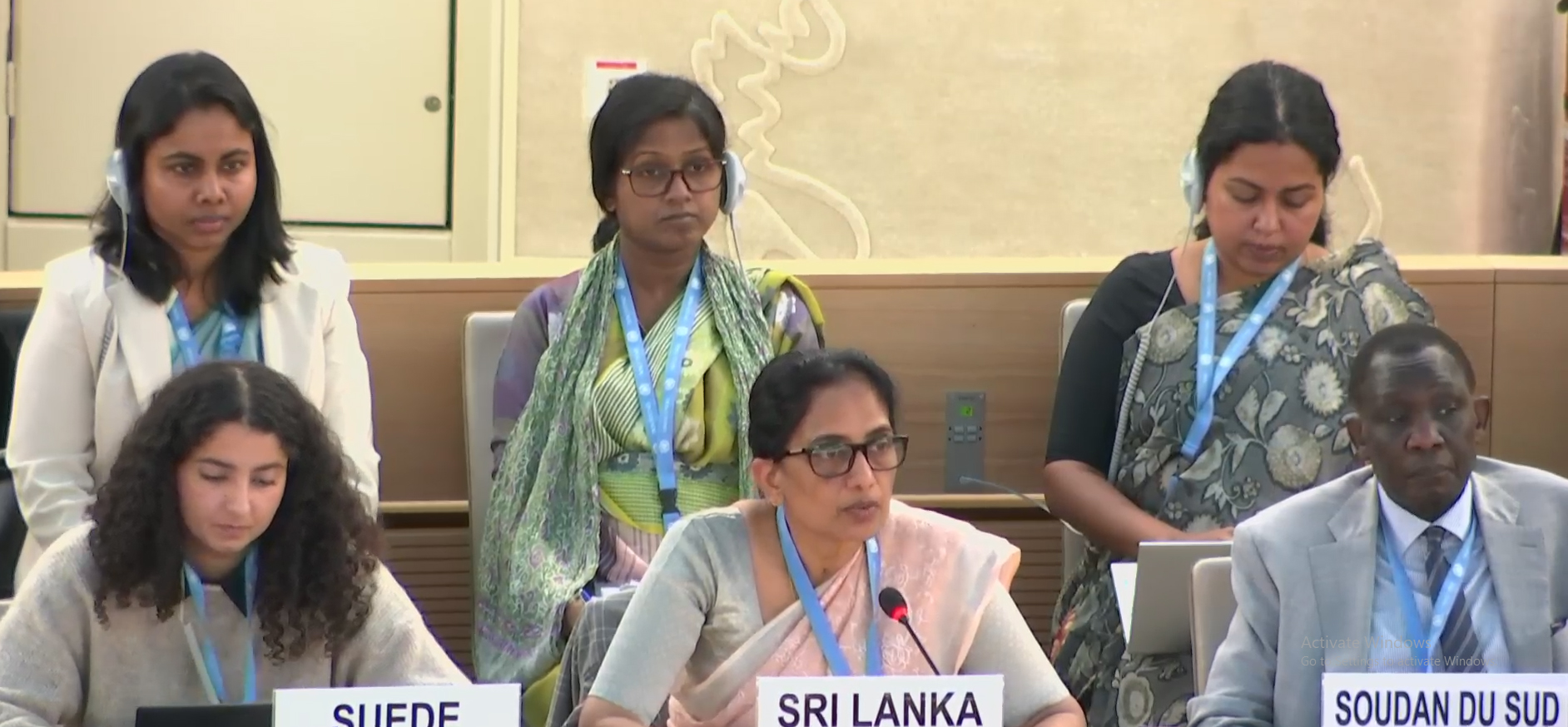
Addressing the UN Human Rights Council in Geneva, the Sri Lankan government under Anura Kumara Dissanayake has categorically rejected several UN resolutions on accountability, reaffirming its refusal to engage with international mechanisms investigating war crimes and human rights violations.
The move, a repeat of its position at the last UN session in September, signals a continuation of the state’s entrenched impunity, despite the new administration’s rhetoric of reform and reconciliation.
Speaking at the 58th session of the UNHRC, Sri Lanka’s Permanent Representative to Geneva reiterated the government's opposition to Resolutions 46/1, 51/1, and 57/1, which mandate an external evidence-gathering mechanism on Sri Lanka under the Office of the High Commissioner for Human Rights (OHCHR). These resolutions were introduced to collect and preserve evidence of war crimes committed during the final stages of the armed conflict and the genocide of Tamils in 2009.
The rejection of these resolutions reflects a long-standing pattern of defiance by successive Sri Lankan governments. Despite overwhelming evidence of atrocities, including extrajudicial killings, enforced disappearances, and sexual violence perpetrated by the military, Sri Lanka has consistently refused to acknowledge its role in these crimes. Instead, Dissanayake’s government has framed international efforts to hold the state accountable as an “intrusion” on sovereignty, echoing the rhetoric of his predecessors.
“Sri Lanka has consistently spoken out against country specific resolutions that do not have the concurrence of the country concerned,” said Himalee Arunatilaka, a controversial ambassador that an Australian court found guilty of “egregious and exploitative” treatment of a domestic worker.
“We have reiterated our rejection of Resolutions 46/1, 51/1, and 57/1 and the external evidence gathering mechanism on Sri Lanka that has been set up using these divisive and intrusive resolutions,” she continued.
“The external evidence gathering mechanism on Sri Lanka within the OHCHR is an unprecedented and ad hoc expansion of the Council’s mandate, and contradicts its founding principles of impartiality, objectivity and non-selectivity. No sovereign state can accept the superimposition of an external mechanism that runs contrary to its Constitution and which pre-judges the commitment of its domestic legal processes.”
Sri Lanka’s domestic mechanisms have repeatedly failed. The Office on Missing Persons (OMP), established in 2017 to investigate the thousands of enforced disappearances, has not provided any accountability for Tamils. Instead, it has pressured families of the disappeared to accept death certificates without conducting proper investigations. The Office for Reparations, similarly, has reduced justice to mere monetary compensation while ignoring the root causes of these violations.
Meanwhile, the military, which carried out these crimes with impunity, remains entrenched across the Tamil North-East, occupying vast swathes of civilian land and continuing to intimidate, surveil, and suppress Tamil communities.
Read the full text of the Sri Lankan address here.
